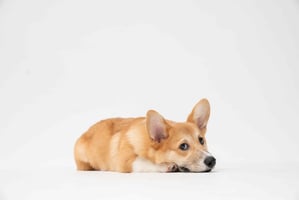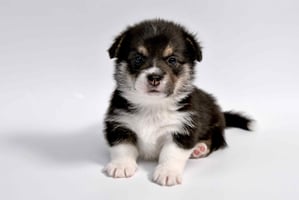Dog tail chewing is a common behavior that can be both normal and problematic, depending on the...
Why Do Dogs Chew Their Tails?
Dogs chewing their tails is a common behavior that can be caused by a variety of reasons. This article will discuss the common causes of tail-chewing in dogs, how to identify it and the best solutions to stop it.
What is Tail-Chewing?
Tail-chewing is a behavior in which a dog chews and/or licks their tail excessively. It can range from mild to severe and can lead to skin irritation, infection or even injury if left unchecked.
It is important to note that tail-chewing is a normal behavior in dogs and can be caused by a variety of reasons. It is only when it becomes excessive or is causing harm to the dog that it should be addressed.
Common Causes of Tail-Chewing in Dogs
The most common causes of tail-chewing in dogs are:
- Anxiety or Stress: Dogs can become anxious or stressed due to changes in their environment, such as a new home, a new pet or a change in routine. This can cause them to chew their tail as a way to cope with their anxiety or stress.
- Boredom: Dogs can become bored if they don't get enough mental or physical stimulation. This can lead to them chewing their tail as a way to pass the time.
- Pain: Dogs may chew their tail if they are in pain or discomfort. This is usually due to an underlying medical condition, such as arthritis or a skin condition.
- Compulsive Behavior: Some dogs may chew their tail out of habit or as a compulsive behavior. This is usually due to an underlying medical condition, such as a thyroid disorder.
It is important to note that tail-chewing can be a sign of an underlying medical condition and should be addressed as soon as possible.
How to Identify Tail-Chewing in Dogs
The first step in addressing tail-chewing in dogs is to identify it. Common signs of tail-chewing in dogs include:
- Excessive licking or chewing of the tail
- Hair loss or bald spots on the tail
- Redness or inflammation of the tail
- Sores or open wounds on the tail
- Excessive shedding of fur from the tail
If you notice any of these signs in your dog, it is important to take them to the vet for an examination as soon as possible.
How to Stop Dogs from Chewing Their Tails
Once you have identified the cause of your dog's tail-chewing, you can start to address it. Common solutions to stop dogs from chewing their tails include:
- Provide Mental Stimulation: If boredom is the cause of your dog's tail-chewing, it is important to provide them with enough mental stimulation. This can include puzzle toys, interactive games and regular walks to keep them mentally and physically active.
- Reduce Stress and Anxiety: If anxiety or stress is the cause of your dog's tail-chewing, it is important to reduce the stressors in their environment. This can include providing a quiet space, introducing a new pet slowly and providing plenty of positive reinforcement.
- Treat Underlying Medical Conditions: If your dog has an underlying medical condition that is causing them to chew their tail, it is important to get them treated as soon as possible. Your vet will be able to provide the appropriate treatment for your dog's condition.
- Use a Deterrent: If your dog is chewing their tail out of habit or as a compulsive behavior, it is important to use a deterrent to stop them. This can include bitter-tasting sprays, citronella collars or distraction toys.
It is important to note that each dog is different and that the best solution to stop them from chewing their tail may vary. It is also important to be patient and consistent with your approach, as it may take some time for your dog to adjust to the new behavior.
Conclusion
Tail-chewing is a common behavior in dogs that can be caused by a variety of reasons. It is important to identify the cause of the behavior and take the appropriate steps to address it. Common solutions to stop dogs from chewing their tail include providing mental stimulation, reducing stress and anxiety, treating underlying medical conditions and using a deterrent. With patience and consistency, you should be able to help your dog stop chewing their tail.



